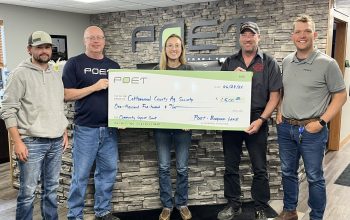These days, Jerrod Frideres is known as something of a local Santa Claus. It's not obvious to look at him at all. He doesn't wear a bright red coat or have a thick, white beard. But he does give a lot of toys away to children.
What else isn't obvious, is that his generosity is a kind of triumph over tragedy. Because it also isn't obvious that like thousands of wounded warriors, Jerrod is suffering from a hidden injury to his brain. In fact, Frideres traumatic brain injury was so inconspicuous that for over two decades, Frideres himself was unaware of it.
In 1993 Frideres was an active duty soldier in the US Army, when a brutal attack at Ft. Sam Houston, Texas, where he was stationed at the time, landed him in the Emergency Room. A fact which he did not know until twenty four years later, when Dr. Rick Joneson of Fort Dodge's Community Health Center told him that he was sure something had happened to him. Something that injured his brain.
Frideres had no recollection of a head injury, but Joneson said that his tests, and images of Frideres' brain, showed the damage without a doubt. And so Dr. Joneson encouraged Frideres to look into his military service records. Which was how Frideres came to find the Emergency Room report which said he'd been hit in the head with something like a pipe, and left for dead by an unknown assailant.
It was the severe headaches, and difficulty hearing, that sent Friederes seeking care. He thought that's all it was, but it wasn't. "What I thought was hearing problems, was really this horrible head injury," Frideres said. "It's amazing to me, you can go through your life, a quarter of a century, and not even know something terrible happened to you."
But Frideres didn't know, and so he went right on doing his duty. Which frequently put him in the vicinity, sometimes within twenty yards, of explosions. More than three thousand blasts during his military career, Frideres estimates. "If I had known I had the head injury, I never would have kept doing that work," Frideres remarked. Saying he's sure the explosions made the damage from his previous injury even worse.
But Frideres isn't a quitter. And he's found ways to keep his mind sharp. Among them, he has taken to playing pool. "I use pool because the rotation aspect of the game is a huge dementia fighter," Frideres said. Especially games like 9 ball, or 8 ball, where you have to sink the balls in sequence, not at random. "You have to plan several balls ahead and think about the angles," he explained. "But if you play a game where you don't have to use your mind, it's no benefit."
It was after he was officially diagnosed with dementia, though, that Frideres really started to get help. Which he credits Dr. Joneson, and his therapy, for. "It just wakes up different parts of your brain, and I just get memories and ideas like you wouldn't believe!" To the point that Frideres now takes a notepad with him to therapy sessions, to write down his flood of ideas. And over the past three years of this therapy, Frideres says, his condition has stopped getting worse, and started getting better.
It didn't take three years though for Frideres to understand that the care he was getting was so miraculous. "I was so lucky to have such a great doctor just practically in my back yard," Frideres said. Which he knew almost right away.
And it was during one of those early visits, while sitting in the waiting room, that Frideres saw a way to give back. "I watched a couple different times I was at the clinic. I saw the kids were scared," he said. So he came up with a plan. He began collecting toys, and donating them to the Community Health Center for their child patients.
"I just like the fact that it makes the kids happy, and the doctors really get into it," Frideres said. Relating how doctors and staff will tell him, with big smiles on their faces, how a kid went from scared to overjoyed to receive a new toy. "Especially the kids who might not get many new toys."
What he started to give back because of his own treatment, he's kept at with even more drive over the past few years because of COVID. "This gives the doctors the chance to come in after a whole two years of Covid, to give the kids a gift."
The process works like this. First, Frideres collects toy donations in the parking lots of stores. He then brings them to the Fort Dodge Community Health Center, where the staff wraps them. Something they all have fun with.
Last year Frideres collected about three hundred toys. The year before, it was more like two hundred. This year, he collected more than ever before. And he launched an online fundraising drive to take advantage of the Black Friday, Shop Local Saturdays, and Cyber Monday deals. Collecting a few hundred dollars for Cyber Monday shopping over the post Thanksgiving shopping weekend, on top of the biggest toy haul yet.
For those wishing to donate to help buy more toys, the fundraiser page is at gofund.me/02e9e7fd and any amount is appreciated.







